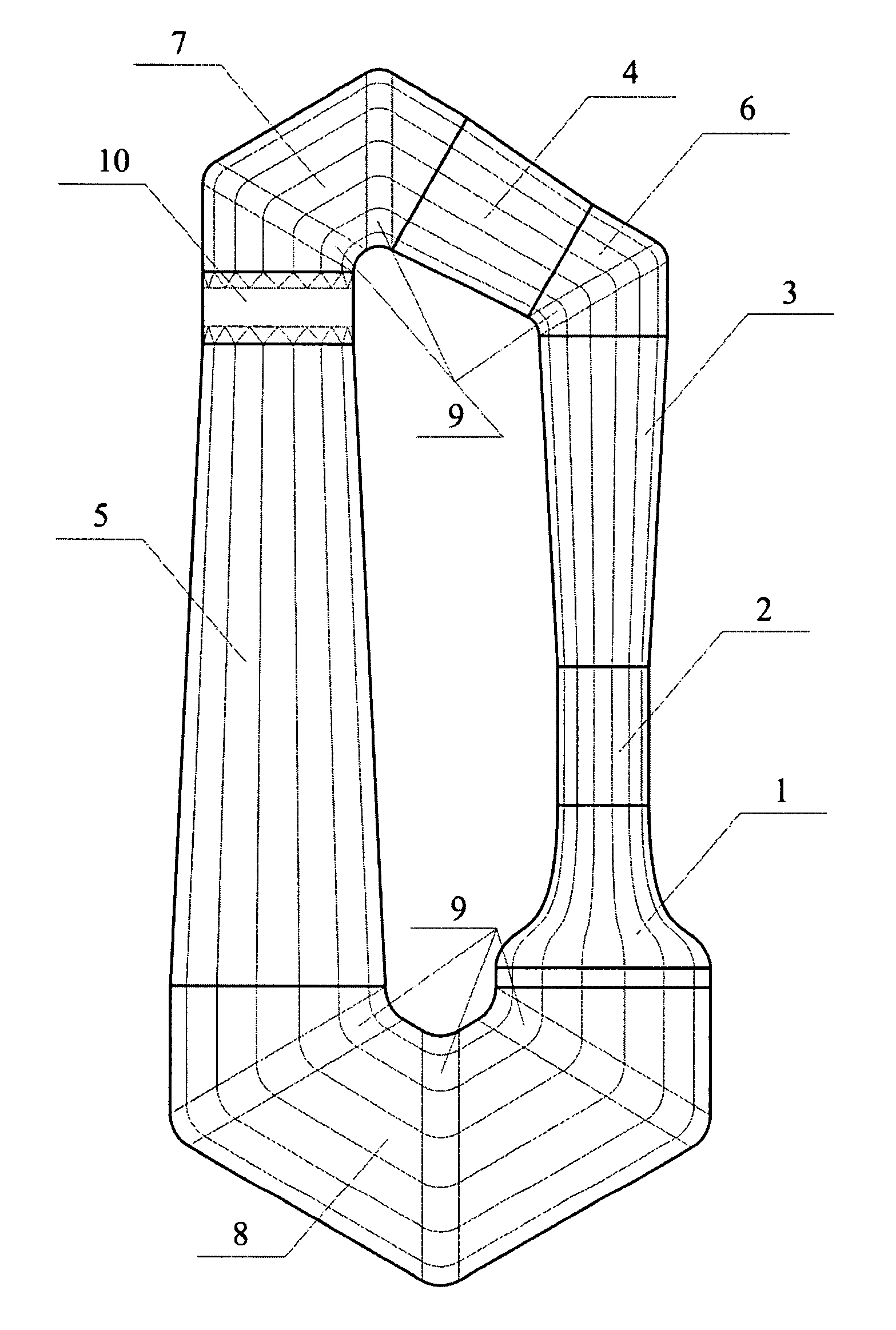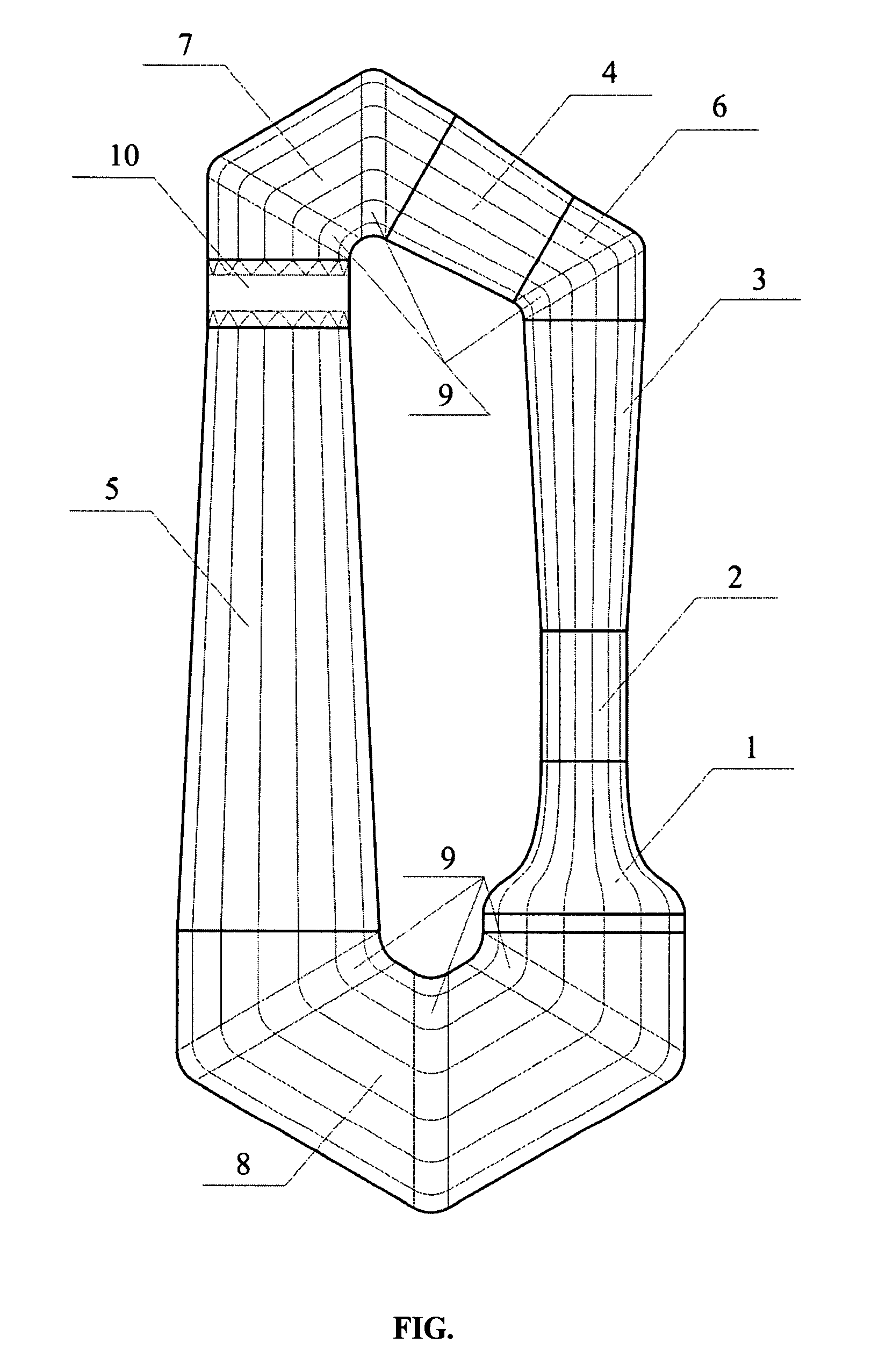Wind tunnel
a wind tunnel and air technology, applied in the field of aerodynamics, can solve the problems of increasing the air pressure loss in the diffuser, affecting the performance of the wind tunnel, so as to reduce the power and reduce the consumption of materials
- Summary
- Abstract
- Description
- Claims
- Application Information
AI Technical Summary
Benefits of technology
Problems solved by technology
Method used
Image
Examples
Embodiment Construction
[0010]While the invention may be susceptible to embodiment in different forms, there is shown in an appended drawing FIGURE (FIG.), and will be described in detail herein, a specific embodiment of the present invention, with the understanding that the present disclosure is to be considered an exemplification of the principles of the invention, and is not intended to limit the invention to that as illustrated and described herein.
[0011]For the purpose to reduce the airflow loss coefficient for the turning bends with a flow turning angle more than 90 degrees, the turning bend may contain several turning guts. Specifically, the wind tunnel may contain turning bends with turning guts, each of which can turn the airflow at an angle of 60 degrees. The first turning bend contains one turning gut for turning the airflow at 60 degrees, the second turning bend contains two turning guts for turning the airflow at 120 degrees, and the third turning bend contains three turning guts for turning t...
PUM
 Login to View More
Login to View More Abstract
Description
Claims
Application Information
 Login to View More
Login to View More - R&D
- Intellectual Property
- Life Sciences
- Materials
- Tech Scout
- Unparalleled Data Quality
- Higher Quality Content
- 60% Fewer Hallucinations
Browse by: Latest US Patents, China's latest patents, Technical Efficacy Thesaurus, Application Domain, Technology Topic, Popular Technical Reports.
© 2025 PatSnap. All rights reserved.Legal|Privacy policy|Modern Slavery Act Transparency Statement|Sitemap|About US| Contact US: help@patsnap.com


